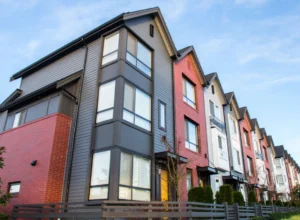Higher Risk, Higher Deposit
Rent it Right
A: To answer your question, we’d need to know first whether your state regulates the amount of the security deposit a landlord may require. Many states set a maximum as a multiple of the monthly rent (twice the rent is common). But some set no limits — Colorado, Florida, Georgia, Idaho, Illinois, Indiana, Kentucky, Louisiana, Minnesota, Mississippi, Montana, New York (nonregulated rentals only), Ohio, Oklahoma, Oregon, South Carolina, Tennessee, Texas, Utah, Vermont, Washington, Wisconsin and Wyoming.
If you live in a state that doesn’t limit the deposit size, your landlord can raise the deposit in a month-to-month tenancy for any reason, as long as he gives proper notice. Tenants with leases cannot be required to increase the deposit until the lease term is up and another lease, with the new deposit amount, is offered.
If you live in a state that does regulate the maximum size of the deposit, and your current deposit is below that ceiling, your landlord can increase it, up to the maximum amount, by giving proper notice to month-to-month tenants or, for lease-holding tenants, waiting until lease renewal time. But if your deposit is already at the max, it can’t be increased in most situations.
“Most situations?” Yes, at least one state has a creative exception for landlords who are otherwise limited in what they can collect but who think their tenants or properties generate more risk than the security deposit limit would cover.
In South Dakota, the upper limit for a deposit of one month’s rent may be exceeded if “special conditions pose a danger to maintenance of the premises.” And in Alabama, the one month’s rent limit may be exceeded by requiring an additional pet deposit, a deposit to cover the cost to undo a tenant’s alterations, or a deposit to cover tenant activities that pose increased liability risks.
If you live in Alabama, your landlord’s theory that your commercial piano lessons pose extra risk for him might support his attempt to require more than the normal limit for deposits. He’d argue that because more people will be on his property, the chances that he may be sued go up.
Suppose, for example, that there’s a loose front step. If the resident plus her students equals six people per day using the steps, the chances that someone will be hurt are much higher than if only the resident alone were using the steps. To say that it’s the landlord’s responsibility to fix the step is beside the point — the reason he has insurance is to protect him in case he is negligent.
He will, indeed, suffer the consequences if there’s a successful claim, in the form of a dropped policy or perhaps higher premiums. Those are the consequences that the higher deposit is intended to cover.
Instead of asking for a relatively small additional deposit, your landlord should consider requiring you to obtain your own insurance policy, which will cover the landlord in the event that disruptions from your business activities result in financial loss to him.
Contact your agent (you can start with your renters’ policy agent, or your car insurance company) and discuss it. Such a policy will have the added benefit of protecting you, too.
Janet Portman is an attorney and managing editor at Nolo. She specializes in landlord/tenant law and is co-author of “Every Landlord’s Legal Guide” and “Every Tenant’s Legal Guide.” She can be reached at [email protected].
Find out more at www.joinaaoa.org.
To subscribe to our blog, click here.













 Accessibility
Accessibility